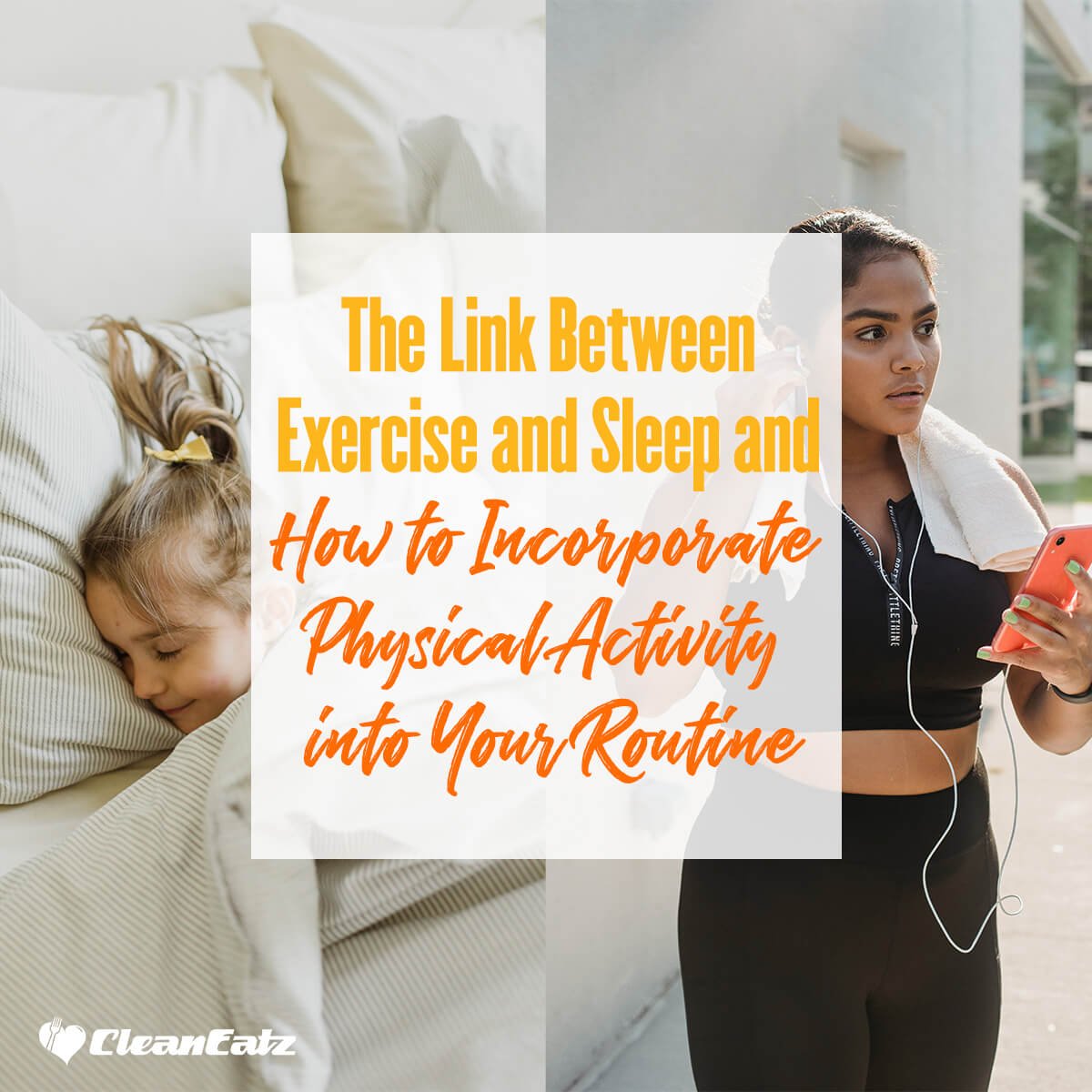
The Link Between Exercise and Energy Level
Jason Nista
Nutrition
|
Exercises & Fitness
|
Weight Loss
7 minute read
You know that getting a good night's sleep is important, but did you know that exercise can help you get there? Delve into the link between exercise and energy level. Believe it or not, working out regularly can have a huge impact on your sleep habits.
In this article, we'll break down the link between exercise and energy level and show you how to make physical activity work for you. We'll also provide some tips for overcoming common obstacles to a healthy workout routine. So whether you're looking to get more shut-eye or just want to start seeing better results at the gym, read on for all the info you need.
Importance of Sleeping Better
Regular exercise is important for better sleep for a variety of reasons. First, it tires your body out and makes it easier for you to fall asleep at night. Second, it can help regulate your body's natural sleep rhythms, which can be disrupted by things like stress and anxiety. Third, working out releases endorphins, which have a calming effect and can help you get to sleep more quickly.
All of this is to say that if you're looking for a good way to improve your sleep, routine exercise is a great place to start. Just make sure to do it at least three hours before bedtime so that your body has enough time to wind down.
Importance of Adequate Rest After Exercise
Exercise is key to a healthy body, and getting enough sleep is essential for a healthy mind. It's important to understand the link between exercise and sleep and find a way to balance both in your life.
That's why it's important to plan your workouts around your sleep schedule. If you know you have an early morning workout planned, try to get to bed a little earlier that night. And if you're having trouble sleeping, try avoiding strenuous exercise later in the day.
Finding the link between exercise and energy level can be tricky, but it's worth it in the end. When you're well-rested, you feel better mentally and physically—and you're more likely to stick with your fitness routine long-term.
Tips for Incorporating Physical Activity into Your Routine
You don't need to become a gym rat to reap the benefits of regular physical activity. Remember, it's all about creating a habit. Start small with just 10 minutes of activity a day, or split a longer workout into two shorter ones. From there, you can slowly increase your duration and intensity as you become more comfortable with the routine.
Here are some other tips that may help you incorporate physical activity into your routine:
- Choose an activity you actually enjoy. That way it won't feel like work and you'll look forward to doing it.
- Set realistic goals so it doesn't become overwhelming and make sure to set aside 15 minutes or so for stretching before and after for improved flexibility and mobility.
- Don't forget about rest days! Make sure to give yourself time to recover in between workouts so your body can repair itself and build strength.
Exercises to Help You Sleep Better
If you're looking for exercises specifically to help you sleep better, there are certain types that work better than others. For example, moderate-intensity aerobic exercises like walking, jogging, and cycling are all great for sleep health. And low-intensity stretching and yoga can help you relax and reduce stress levels.
These activities are also great because they don't require too much effort or intensity—and they can actually make you feel good while giving your body an energy boost. Plus, it's also helpful to stick to the same routine so that your body becomes used to the timing.
Finally, avoid any high-intensity activities too close to bedtime because they'll only make things worse by raising your heart rate and keeping your mind active. Try to do those activities earlier in the day when your energy levels are higher.
Misconceptions About Exercise and Sleep
An important thing to note is that there are a few common misconceptions about the link between exercise and sleep. The first myth is that intense exercise will give you an improved, deeper sleep. This idea might be true for some people but it’s not a guarantee. Everyone's body and sleep cycle react differently to physical activity so while it might work for some, it doesn't necessarily work for everyone in the same way.
Another myth is that exercise stimulates your body and keeps you awake at night. While it is true that exercise can make you more alert and energized due to increased endorphins, the endorphin rush won't last much past the end of your workout, so if anything, it’ll help you fall asleep quicker.
Finally, another misconception when it comes to the link between exercise and sleep is that if you don’t exercise, then you’ll have a better night’s rest. This isn't necessarily true as regular exercise has been linked to a better overall quality of sleep as well as increased energy and productivity during the day.
So, now that you know the importance of exercise and sleep, how can you make sure you're getting enough of both? Many experts recommend incorporating physical activity into your day as a way to ensure you're getting enough exercise.
Ideally, you should be aiming for at least 30 minutes of moderate-intensity exercise every day. If you're not currently active, start by adding 10 minutes of exercise to your day and gradually increase the duration and intensity over time.
If you want to acquire the perks associated with regular physical activity sooner, then you’re highly recommended to follow a suitable diet plan alongside your exercise routine. Clean Eatz Kitchen offers a huge variety of some of the best meal plans that will certainly keep you hooked!
Final Thoughts
Exercise tires your body, regulates its natural sleep rhythms, and releases endorphins, all of which aid in sleeping. Adequate sleep following exercise allows your body and muscles to recover. To incorporate physical activity into your daily routine, find something that you enjoy, set realistic goals, and remember to give your body adequate rest. Intense exercise doesn’t give you a deeper sleep. Exercise doesn’t keep you awake at night by stimulating the body. You won’t necessarily have a better night’s rest if you don’t exercise.
FAQ
Can overexercising negatively impact sleep?
Yes, excessive exercise, especially intense workouts close to bedtime, can disrupt sleep. It's essential to find a balance and avoid overtraining, as this can have adverse effects on sleep and overall health.
How long does it take to notice improvements in sleep after starting an exercise routine?
Individual experiences vary, but some people may begin to notice improvements in sleep quality within a few weeks of starting a consistent exercise regimen.
Are there any specific dietary recommendations to enhance the exercise-sleep connection?
Maintaining a balanced diet rich in nutrients can complement the benefits of exercise on sleep. Avoid heavy meals close to bedtime, as they might lead to discomfort during sleep.
Should I consult a healthcare professional before starting a new exercise routine for sleep improvement?
Yes, especially if you have any underlying health conditions. It's a good idea to consult a healthcare provider or a fitness professional before making significant changes to your exercise routine, ensuring it's safe and suitable for your individual needs.
Related Articles
How Much Water Should You Drink A Day?
12 minute read



